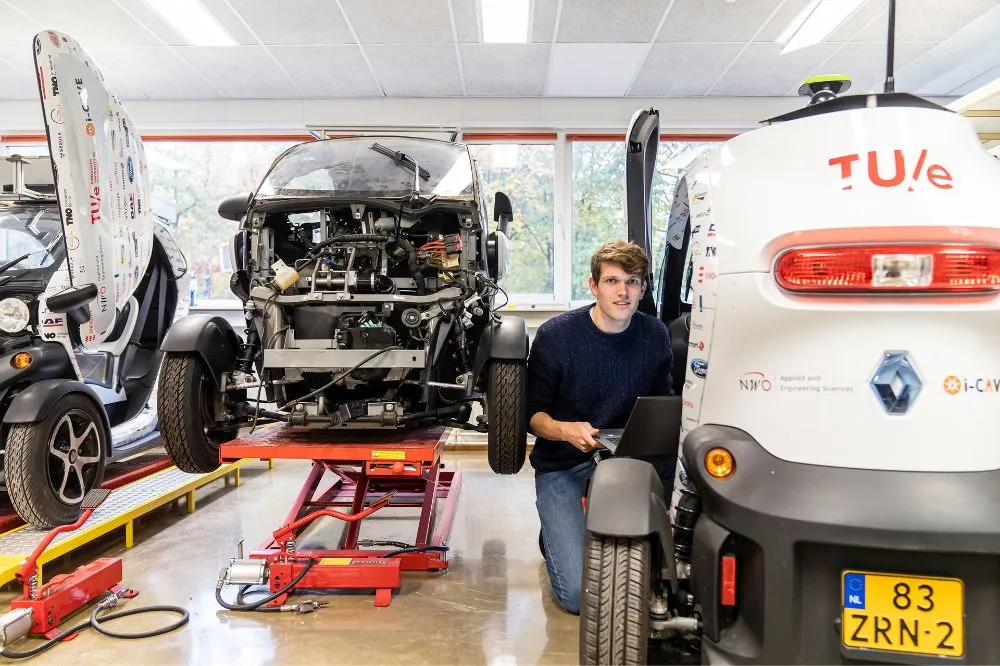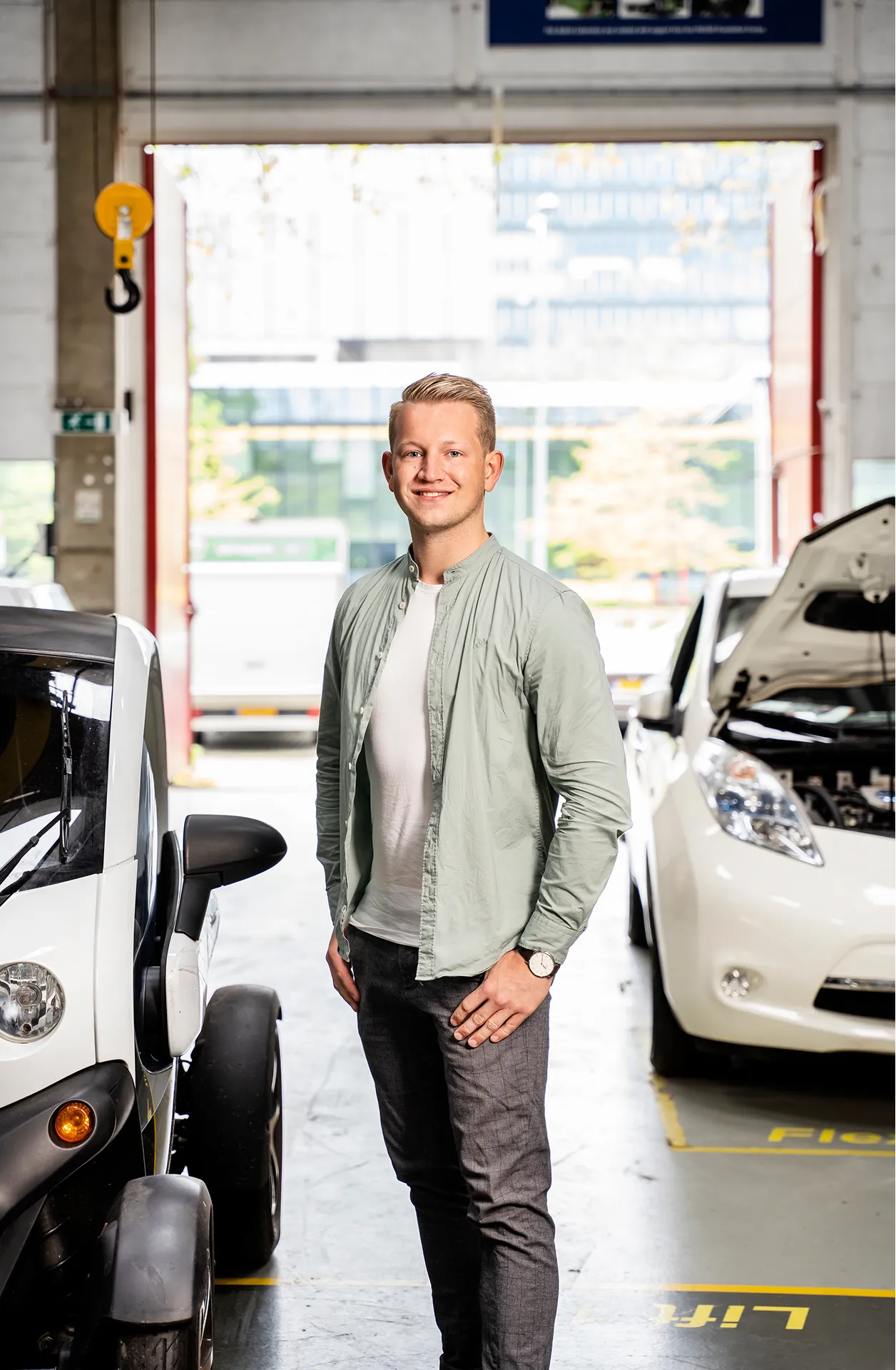Why study Automotive Technology?
Design and develop high-tech vehicles by understanding them as integrated systems. TU/e’s two-year MSc Automotive Technology addresses multidisciplinary challenges—from mechanics and electronics to IT and human–machine interaction—while considering both the vehicle itself and its wider impact on people and the environment. With courses across five departments, you will acquire the skills to create safer, smarter and more sustainable mobility solutions.

Three unique strengths
- Multidisciplinary approach: Study within a unique partnership of five TU/e departments combining mechanical, electrical, and computer engineering with human-centred perspectives.
- Systems thinking for complex vehicles Understand how modern vehicles function as integrated systems of mechanical, electronic, and software components.
- Specializations in Smart & Sustainable Mobility Tailor your studies by choosing from two core areas:
- Smart Mobility: Focus on autonomous and cooperative driving, embedded software, vehicle dynamics, regulation systems, and human factors.
- Sustainable Mobility: Explore future combustion engines, electric and hybrid vehicles, and advanced transmission systems.
Connection with semiconductors
Modern vehicles are data-driven systems that rely heavily on semiconductors for sensors, power electronics, control units and connectivity. This programme links engineering domains with semiconductor applications, equipping graduates to shape next-generation electric, connected and autonomous vehicles.
Programme structure
In the first year, you develop core competences in vehicle engineering, systems integration, data-driven design, electronics and mobility impact. The second year allows for specialisation, electives and a major research project carried out in close collaboration with industry partners.
Career perspectives
Graduates are in high demand across the automotive and high-tech sectors. Career opportunities range from R&D roles in electric and autonomous vehicles, intelligent transport systems and semiconductor-driven automotive electronics, to strategic positions in sustainable mobility innovation.


.svg)




